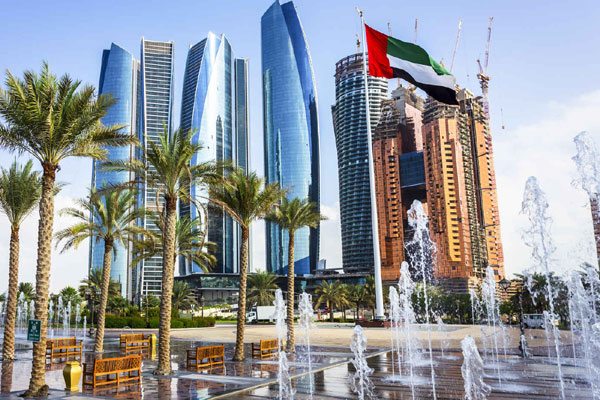
Abu Dhabi recorded a real GDP growth of 4.5% year-on-year in Q3, thus marking the fastest pace of expansion in the emirate since Q4 2022, according to Emirates NBD Research.
This marked the fastest pace of expansion in the emirate since Q4 2022 as Opec+-mandated oil production curbs have held back growth in the oil economy over the past two years.
Growth was driven primarily by the non-oil sector which grew 6.6% y/y and 5.9% year-to-date, in line with our full-year estimate of 6.0% growth last year, it stated.
Despite the ongoing production curbs, the oil sector did register positive growth over the first nine months of 2024 following the contraction seen in 2023. It was up 2.2% y/y in Q3 and 1.6% y-t-d over Q1-Q3 even as Bloomberg crude oil production data shows a y/y decline of 1.3% to an average of 2.97 million b/d in 2024.
This GDP expansion likely reflects ongoing investment in the sector alongside growth in condensates production, which are not covered by the OPEC+ agreement, and natural gas.
In 2025 we anticipate a modest uptick in the UAE’s oil production later in the year, while the first half will see a fillip from the current curbs passing through the base, and we forecast an acceleration to 5.0% oil sector growth this year, said Emirates NBD Research in its review.
The fastest-growing sector in 2024 was the transport & storage sector, which was up 15.9% y-t-d and accelerated to 18.0% y/y in Q3. This is a similar story to Dubai where the sector has also been an outperformer.
Strong growth in passenger numbers at Zayed International have been a key driver of this expansion, with January to September seeing 21.7mn people pass through the facility, up 31.2% y/y, while aircraft movements were up 10.2% y/y.
Statistics Centre Abu Dhabi (SCAD)’s statement also highlighted the role played by the shipping and ports sector, with growth in container and general cargo throughput at the emirate’s port facilities.
Emirates NBD Research pointed out that another notable growth story in Abu Dhabi in 2024 was the rapid expansion of the financial services sector, which logged the second-fastest pace of growth, up 11.6% y-t-d, accounting for 6.4% of total output.
The emirate has been increasingly positioning itself as a major financial hub, attracting growing numbers of hedge funds and other money managers to set up operations in the ‘capital of capital’.
In the first half of the year the ADGM issued 1,271 new licences, up 20.5% y/y while assets under management expanded 226%. Alongside the growing presence of major international names, the Abu Dhabi-headquartered sovereign wealth funds have also been highly active.
According to a report by Global SWF published at the start of 2025, Mubadala accounted for nearly 20% of all funds deployed globally by sovereign wealth funds last year.
The construction sector logged the third-fastest pace of growth, and as the largest non-oil component of GDP, provided much of the headline expansion. It grew 10.0% y/y in Q3 and was up 10.4% y-t-d over the three-quarter period.
SCAD’s statement noted an increase in urban infrastructure projects, likely powered by ongoing population growth in Abu Dhabi and the wider UAE, with the real estate sector also benefiting, up 4.3% y-t-d.
"An expansionary budget and the development of major infrastructure projects such as Etihad Rail and the Abu Dhabi metro should prompt ongoing growth in construction activity in 2025, while our expectation of further rate cuts by the US Federal Reserve, and by extension the CBUAE, should be supportive of both households and private sector businesses," said Emirates NBD Research in the review.
The pace of growth in the transport sector will be difficult to maintain at such a high level, but expansion plans by Etihad as it looks to double its annual passengers (Abu Dhabi aviation seeing strong growth) should be supportive nonetheless, it stated.
"We forecast non-oil GDP growth of 5.5% in Abu Dhabi this year, and headline growth of 5.3%," he added.-TradeArabia News Service
